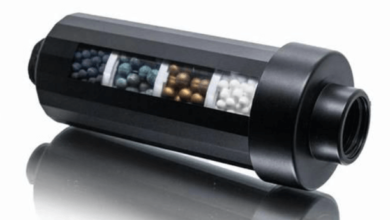What to Look for in a Camera Rental Agreement in Toronto

Renting a camera in Toronto can be an excellent option for both professionals and hobbyists who need high-quality equipment for short-term projects. However, to avoid any potential pitfalls or hidden costs, it’s essential to thoroughly understand the terms of the camera rental agreement before signing.
Image Credit Goes to Toronto Audio Visual Rentals
In this guide, we’ll break down the most important aspects to look for in a Toronto camera rental agreement, helping you make informed decisions that protect both your wallet and your project.
1. Rental Period and Late Fees
One of the first things you should pay attention to in any camera rental agreement is the rental period. The terms should clearly outline the start and end date of the rental, specifying the exact time the gear must be returned.
- Grace Periods: Some Toronto camera rental companies may offer a short grace period (usually an hour or two) for returns, while others charge immediately for late returns. Clarify if there is any flexibility in returning the equipment, especially if you’re renting during a busy weekend or high-demand period.
- Late Fees: The rental agreement should clearly outline any penalties for returning equipment late. Toronto rental houses often charge an additional day’s rent for each day the equipment is late, and fees can accumulate quickly. Make sure you’re fully aware of these charges before you rent.
Toronto Tip: If you anticipate needing extra time, some rental companies allow you to extend your rental at a reduced rate if you notify them before the due date. This could save you from expensive late fees.
2. Insurance and Liability
Camera equipment is expensive, and AV rental houses need to protect their gear from damage. Most camera rentals in Toronto will require you to provide proof of insurance or pay for their in-house insurance to cover potential damages or theft during the rental period.
- Insurance Options: Check if the rental company offers in-house insurance coverage and compare it with external options. Some companies in Toronto allow you to purchase their insurance directly, but you may also be able to use your own photography equipment insurance, which could be more affordable if you rent often.
- Liability for Damage: Understand who is responsible if the equipment is damaged during the rental period. Some agreements may hold you accountable for repair or replacement costs, even if the damage wasn’t your fault. Look for terms that specify what constitutes normal wear and tear and how much liability you assume.
FOR INFORMATIVE CONTENT VISIT.. : Christmas gifts
Toronto Tip: Some credit card companies offer coverage for rented equipment. Before purchasing any extra insurance, check if your credit card provides this benefit. It could save you a significant amount on rental insurance costs.
3. Deposit Requirements
Most camera rentals in Toronto will require a deposit, especially for high-end cameras and expensive gear like professional video cameras or lenses. This deposit serves as security for the rental company in case of damage or theft.
- Deposit Amount: The rental agreement should clearly state how much the deposit is, how it will be collected (usually a hold on your credit card), and when it will be refunded after the rental period ends.
- Refund Terms: Clarify how long it takes for the deposit to be refunded once you return the gear. Some companies release the hold on the same day, while others may take a few business days to process the refund, especially if the equipment needs to be inspected for damage first.
Toronto Tip: If you rent frequently, some Toronto rental houses allow you to maintain a credit or establish an ongoing relationship where deposits may be waived after a certain number of rentals.
4. Equipment Condition and Inspection
Before taking any equipment from a Toronto camera rental company, carefully inspect it to ensure it’s in working condition. Most rental agreements will include a clause requiring you to acknowledge that you received the equipment in good condition, which can place liability on you if any damage is discovered later.
- Pre-Rental Inspection: Check that the camera, lenses, batteries, and accessories are all working properly before leaving the rental location. If you notice any scratches, dents, or malfunctions, report them to the rental house immediately so they can be noted on the agreement.
- Post-Rental Inspection: Understand the company’s process for inspecting the gear upon return. Some Toronto camera rental services will inspect the equipment immediately when you return it, while others may take a day or two. Make sure to return the gear in the same condition it was provided to avoid deposit deductions.
Toronto Tip: Take time-stamped photos or videos of the equipment upon pick-up and return to protect yourself in case there’s a dispute about its condition.
5. Included Accessories and Missing Gear Fees
Make sure your Toronto camera rental agreement lists all the accessories that are included in your rental package. Forgetting to return even small items, such as lens caps, can result in extra fees.
- Accessory List: The agreement should detail all included accessories, such as memory cards, batteries, chargers, or camera bags. Double-check that everything listed is present when you pick up the gear.
- Replacement Fees for Missing Items: Ask what the fees are for any missing or damaged accessories, as these can sometimes add up quickly. For example, a lost lens cap or battery may not seem like a big deal, but some rental houses charge steep fees for these items.
Toronto Tip: When renting, especially if you’re getting a lot of gear, it’s helpful to use a checklist to ensure that everything is returned. Some Toronto camera rental houses provide a return checklist for this reason.
6. Cancellation Policy
Life happens, and you might need to cancel your rental last minute. Each camera rental company has its own cancellation policy, so understanding the terms is important to avoid unnecessary charges.
- Cancellation Fees: Many Toronto camera rental services require a certain amount of notice to cancel without a fee. Typically, if you cancel within 24 to 48 hours of the rental period, you may be charged a fee, or in some cases, the full cost of the rental.
- Rescheduling: If you need to push back your rental start date, some companies will allow you to reschedule without a penalty, as long as you give enough notice.
Toronto Tip: If you’re unsure about your shooting schedule, consider booking with a rental company that offers flexible cancellation or rescheduling policies. This way, you won’t be locked into paying for gear you don’t end up using.
7. Customization and Upgrade Options
Sometimes, your project requires specific gear or an upgrade to what you initially planned. Check if your camera rental agreement allows you to make changes after booking, and what the associated costs are.
- Upgrade Flexibility: Some camera rentals in Toronto allow you to upgrade your camera or lens during the rental period if your project scope changes. Ask whether upgrades or equipment changes are possible after the agreement has been signed and if there are any fees.
- Customization: If your rental package doesn’t include specific accessories (such as certain lenses or tripods), check if you can customize your package and how much it would cost to add them. This could save you money by avoiding the need to rent a full package when you only need one or two extra items.
Toronto Tip: If you’re unsure about the gear you’ll need, choose a Toronto camera rental service that offers flexible package options and allows for easy modifications to your rental agreement.
Conclusion: Protect Yourself by Knowing the Details of Your Camera Rental Agreement
Before you sign any Toronto camera rental agreement, take the time to read the fine print and understand the terms. Knowing what to expect in terms of rental periods, insurance, deposits, equipment inspection, and more can save you from unexpected charges and help ensure a smooth rental experience.
By carefully reviewing the agreement and asking questions when needed, you can rent the best equipment for your project with confidence. Whether you’re a seasoned professional or a first-time renter, these tips will help you navigate the camera rental process and avoid common pitfalls.






